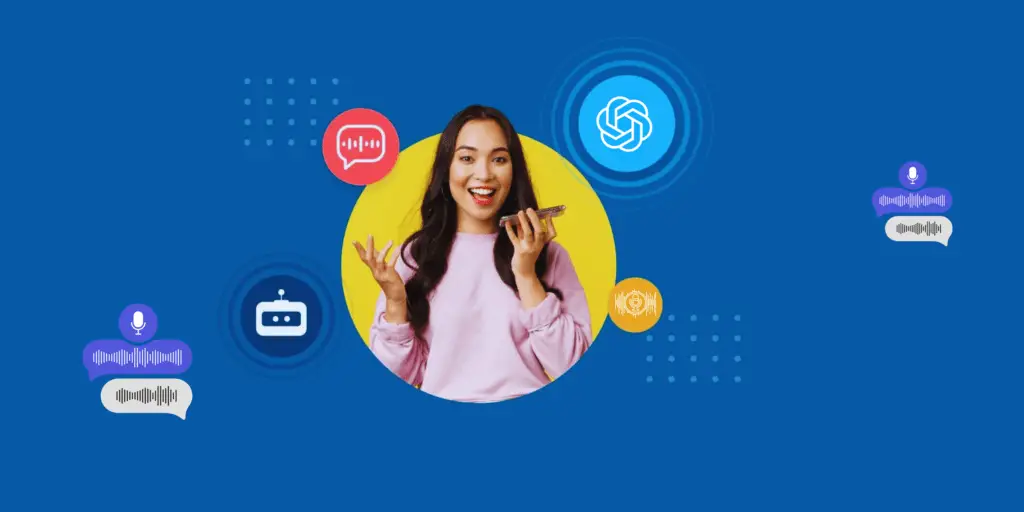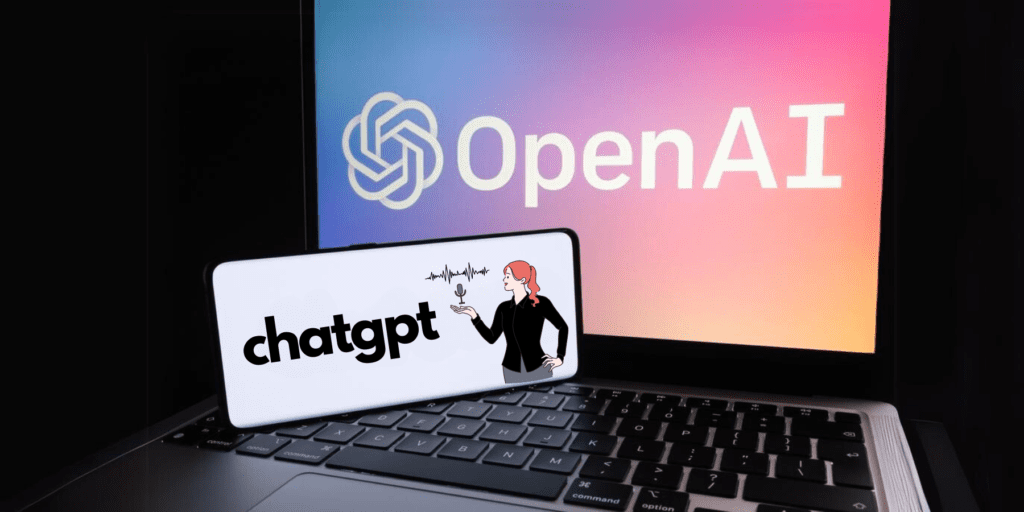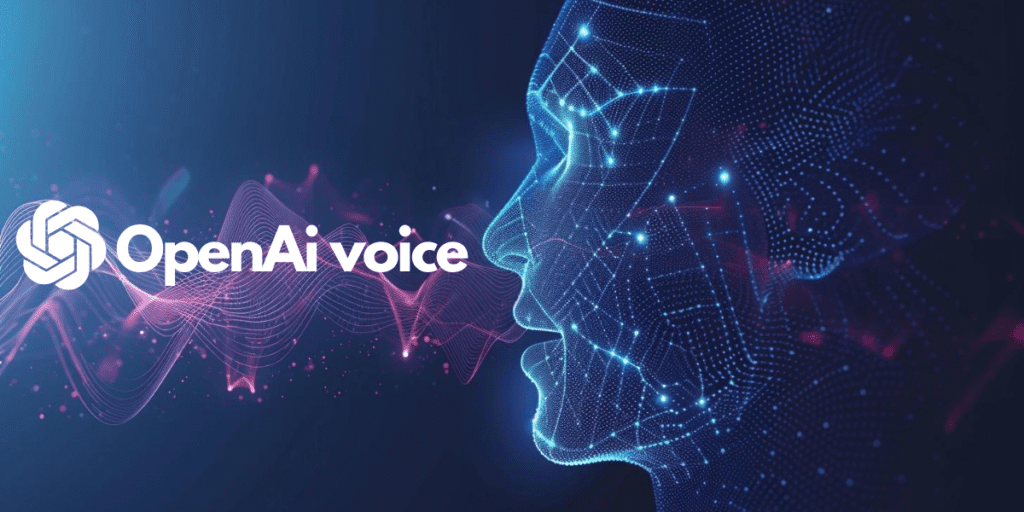OpenAI, the organization behind the groundbreaking ChatGPT, recently unveiled its latest technological advancement: the Voice Engine.
This cutting-edge technology boasts the ability to clone a person’s voice with just a brief recording of their speech, heralding a new era in voice synthesis.
Despite the remarkable capabilities of this new engine, OpenAI has made the decision not to release it to the general public, citing significant safety concerns and the potential for misuse.
This introduction marks a pivotal moment in the intersection of artificial intelligence and ethical responsibility, reflecting OpenAI’s commitment to navigating the complex landscape of AI development with a keen eye on the societal implications.
As we delve into the intricacies of the Voice Engine and the rationale behind its restricted release, it becomes clear that this decision underscores a larger conversation about the balance between technological advancement and the ethical considerations that come with it.
OpenAI’s Foray into Voice Technology
OpenAI’s venture into voice technology with its newly unveiled Voice Engine marks a significant milestone in the evolution of artificial intelligence.
This foray is not just about expanding OpenAI’s repertoire of AI capabilities; it’s about pushing the boundaries of what’s possible in the realm of voice synthesis.
The Voice Engine, developed by the same minds behind the revolutionary ChatGPT and the imaginative DALL-E, demonstrates OpenAI’s commitment to exploring new frontiers in AI while addressing the ethical implications of such advancements.
The Voice Engine by OpenAI represents a remarkable leap forward in the field of voice technology. With the ability to clone a person’s voice from merely 15 seconds of audio, this technology stands at the forefront of voice synthesis, offering unprecedented accuracy and realism.
This capability not only showcases the technical prowess of OpenAI but also opens up a plethora of possibilities for applications ranging from personalized voice assistants to more immersive gaming experiences.
Despite the excitement surrounding its Voice Engine, OpenAI has chosen to tread cautiously, prioritizing ethical considerations and safety precautions above all else.
The decision not to release the technology publicly stems from a deep understanding of the potential for misuse, such as the creation of convincing fake audio clips that could be used to deceive, manipulate, or harm.
OpenAI’s approach reflects a broader responsibility to ensure that advancements in AI contribute positively to society and do not exacerbate existing challenges or introduce new risks.
OpenAI’s foray into voice technology with the Voice Engine is more than just an addition to its technological achievements; it sets a precedent for responsible AI development.
By choosing to limit access to the technology and engage early testers under strict ethical guidelines, OpenAI is demonstrating a commitment to navigating the complex ethical landscape that accompanies AI innovations.
This approach serves as a model for the industry, highlighting the importance of balancing technological advancement with the need for oversight, ethical consideration, and public safety.

Safety Concerns
The unveiling of OpenAI’s Voice Engine, a technology capable of cloning a person’s voice with just a snippet of their speech, has sparked a significant conversation around safety concerns and ethical considerations.
This groundbreaking technology brings to light the potential risks and ethical dilemmas associated with artificial intelligence, particularly in the realm of voice synthesis. OpenAI’s decision to withhold the public release of this technology underscores the complexities and responsibilities inherent in the development and deployment of AI.
One of the most pressing concerns regarding voice-cloning technology is its potential for misuse. The ability to generate convincing audio recordings of individuals without their consent opens the door to a range of malicious activities.
For instance, it could be used to create fraudulent audio clips that mimic public figures, leading to misinformation and public confusion. The risk is further magnified in sensitive contexts such as elections, where AI-generated voice clips could be used to influence public opinion or undermine democratic processes.
The ethical implications of voice cloning extend beyond the risk of misuse. There are profound questions about consent, privacy, and the authenticity of human communication in an era where technology can replicate human voices with high accuracy.
The possibility of eroding trust in audio recordings as reliable sources of information poses a challenge to societal norms and legal frameworks. Moreover, the emotional and psychological impact on individuals who may find their voices cloned without their permission raises significant ethical concerns.
OpenAI’s cautious approach to the release of its Voice Engine technology reflects a broader commitment to navigating the ethical landscape of AI development.
By choosing to engage early testers under strict conditions, including prohibitions on impersonation without consent and mandatory disclosure of AI-generated content, OpenAI is setting a precedent for responsible innovation.
This approach acknowledges the dual responsibility of advancing technology while safeguarding against its potential harms.
The ethical considerations and safety concerns surrounding voice-cloning technology highlight the need for robust governance and oversight. Developing standards and regulations that address consent, privacy, and the prevention of misuse is critical.
This includes the establishment of ethical guidelines for AI developers and the implementation of mechanisms for accountability and transparency in AI technologies.
OpenAI’s Strategy
OpenAI’s strategic unveiling of its Voice Engine technology, capable of replicating an individual’s voice with mere seconds of audio, showcases a careful approach towards the integration of groundbreaking AI capabilities with societal norms and ethical guidelines.
This strategy, which involves selective previewing with early testers rather than a public release, underscores the organization’s commitment to responsible innovation. Here, we delve into the facets of OpenAI’s strategy and the crucial role of tester involvement in the ethical deployment of voice-cloning technology.
OpenAI’s decision to limit the Voice Engine’s accessibility to a select group of early testers is a direct response to the ethical dilemmas and potential for misuse inherent in voice-cloning technology.
This cautious rollout is designed to mitigate risks by controlling the environment in which the technology is used, allowing OpenAI to gather insights and feedback in a controlled and safe manner.
This approach reflects a broader understanding within OpenAI of the responsibility that comes with pioneering AI technologies, prioritizing societal safety over rapid commercialization.
The individuals and organizations chosen as early testers for the Voice Engine are bound by agreements that outline strict ethical boundaries and conditions of use.
These agreements explicitly prohibit the impersonation of individuals without their explicit consent and require the disclosure of the AI-generated nature of the voices.
Such measures are not merely precautionary; they are foundational to OpenAI’s commitment to fostering trust and transparency in AI advancements. By imposing these conditions, OpenAI aims to ensure that the technology is used in a manner that respects individual rights and aligns with ethical standards.
OpenAI’s strategy of engaging testers under stringent ethical guidelines serves as a balancing act between fostering innovation and ensuring ethical considerations are front and centre.
This model of cautious exploration and controlled testing allows for the advancement of voice-cloning technology in a way that aligns with societal values and mitigates the risk of harmful outcomes.
It also positions OpenAI as a leader in responsible AI development, setting a precedent for how emerging technologies should be introduced to the world.
The feedback and insights gained from early testers are invaluable to OpenAI’s iterative development process. This information not only aids in refining the Voice Engine’s capabilities and safety features but also in understanding the ethical implications of its use in real-world scenarios.
Tester involvement is crucial in identifying potential pitfalls and areas for improvement, ensuring that the technology evolves in a direction that is both innovative and aligned with ethical principles.

Voice Technology in the Market
The advent of OpenAI’s Voice Engine technology represents a significant leap forward in the field of voice technology. Still, it also arrives in a landscape already populated by various forms of voice-cloning technologies.
These technologies, offered by a range of startup companies, serve diverse purposes, from enhancing entertainment experiences to providing innovative solutions for businesses.
OpenAI’s entry into this space, with its cautious approach and groundbreaking capabilities, highlights the evolving dynamics and competitive nature of the market, as well as the broader implications for privacy, security, and innovation.
Voice-cloning technology has seen rapid advancements, with various companies developing solutions that cater to both public and select business customers.
These technologies have found applications in numerous fields, including entertainment, where they are used to generate realistic voiceovers and in customer service as part of interactive voice response systems.
The accessibility of voice-cloning technology varies, with some solutions available to the general public and others tailored to specific industries, such as entertainment studios that require custom voice synthesis for characters.
OpenAI sets itself apart in this crowded marketplace not only through the technological prowess of its Voice Engine but also through its cautious approach to deployment.
While other companies may prioritize wide accessibility and commercial success, OpenAI has chosen to restrict the public release of its voice-cloning technology due to ethical concerns and the potential for misuse.
This approach underscores a commitment to responsible innovation and the importance of navigating the ethical challenges posed by such powerful technologies.
The introduction of OpenAI’s Voice Engine into the market could redefine competitive dynamics, pushing other companies to innovate while also considering the ethical implications of their technologies.
OpenAI’s focus on safety, ethics, and controlled testing could set new standards for the industry, encouraging a more cautious and thoughtful approach to the development and deployment of voice-cloning technologies.
OpenAI continues to refine its technology and expands its availability in the future, it may challenge existing players by offering superior accuracy, realism, and ethical safeguards.
The market’s response to OpenAI’s Voice Engine and its approach to ethical concerns will likely influence the future development of voice-cloning technologies.
Companies may be prompted to reevaluate their own practices, particularly regarding consent, privacy, and the prevention of misuse.
Heightened awareness of the potential risks associated with voice cloning may lead to increased scrutiny from regulators and policymakers, shaping the regulatory landscape in which these technologies operate.

Conclusion
The unveiling of OpenAI’s Voice Engine, a technology capable of cloning a person’s voice from just a short audio sample, marks a significant milestone in the realm of artificial intelligence and voice synthesis.
This development reflects the tremendous potential of AI to innovate and transform our interaction with technology.
OpenAI’s deliberate decision not to release this technology to the public due to ethical concerns and potential for misuse underscores a critical juncture in the evolution of AI—a moment where innovation meets responsibility.
OpenAI’s approach to the development and potential deployment of the Voice Engine highlights the importance of ethical considerations in the AI field.
The organization’s commitment to controlled testing, coupled with strict guidelines for early testers, sets a precedent for responsible innovation. It emphasizes the necessity of balancing technological advancement with the safeguarding of societal norms and individual rights.
The landscape of voice-cloning technology is diverse and rapidly evolving, with numerous players in the market offering a range of applications.
Into this competitive arena, OpenAI introduces not just a technological marvel but a challenge to the status quo, urging a re-evaluation of how such technologies should be developed, deployed, and regulated.
OpenAI’s stance advocates for a future where advancements in AI are guided by ethical principles, transparency, and a commitment to the greater good.
As we look forward, the conversation around the Voice Engine and similar technologies will undoubtedly continue to evolve, encompassing not only technical capabilities but also ethical, legal, and societal implications.
OpenAI’s cautious yet innovative approach invites industry stakeholders, policymakers, and the public to engage in a dialogue about the future we wish to build with AI.
The journey of the Voice Engine, from its conception to its restricted release, serves as a reminder of the dual-edged nature of AI, offering boundless possibilities while presenting new challenges to be navigated with care and foresight.


